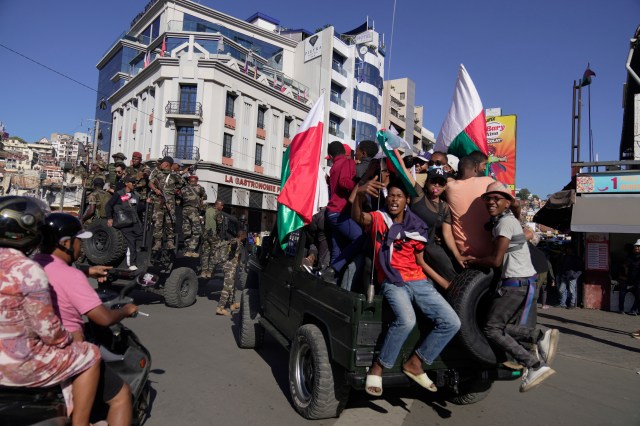
According to newspaper reports, Madagascar’s President Andry Rajoelina has fled his country. After weeks of street protests, parts of the army switched sides and joined the protesters. What started as a protest over power cuts and water shortages quickly escalated into a full-blown uprising against corruption and political decay. There was no option for the president but to disappear when his own soldiers refused to act against the crowds.
Such protests may seem like a local crisis to some, but they are part of a much larger story. Across continents, from Madagascar and Morocco to Nepal and Bangladesh, we see young people revolting in defiance. They are not only angry but also awake in a way that frightens the old political order. What we are witnessing is definitely not another cycle of student unrest. On the contrary, it’s a generational confrontation over democracy, power, and fairness.
How do we make sense of this? It may be worthwhile to recall that Gen Z, the digital generation, has actually grown up watching the world’s contradictions in real time. To them, their phones are their classrooms, newsrooms, and protest sites. They have seen, in high definition, corruption exposed, governments collapsing, and promises made to them quickly forgotten. They were led to believe they lived in an age of opportunity, but what they actually experienced was insecurity and exclusion. Despite being educated, connected, and creative, they often find themselves excluded from decisions that shape their futures.
Of course, the spark that lights the fire may differ across countries, but the flames look the same everywhere. In Madagascar, it was the decay of public services. In Nepal, a series of corruption scandals led to the downfall of a prime minister. In Morocco, the contrast between the World Cup’s extravagance and everyday hardship sparked fury. In Bangladesh, rising unemployment and arrogance among the political elite were prevalent. There is a common but very important grievance beneath these stories: Young people feel ignored in systems that make decisions about them, rather than with them.
One shouldn’t also forget that at the centre of this unrest is economic frustration. Across much of the Global South, youth unemployment remains alarmingly high. Even graduates with skills find themselves on the margins. Worse still, when the system prioritises connections over competence, trust erodes. When corruption is added to that mix, the result is extreme cynicism bordering on despair. And they feel insulted when governments spend lavishly on prestige projects while schools, hospitals, and water systems crumble.
Thus, it would be naive to conclude that their rebellion is just about anger. Examined closely, one realises it’s also about power. This generation has something absolutely crucial that earlier ones did not: The ability to organise without permission. Social media has become their town square, their printing press, and their loudspeaker. Within minutes, they can gather, share, and mobilise. Their movements are spontaneous, leaderless, and visually powerful — fuelled by memes, live streams, and shared outrage. The old order may call it chaos; for them, it’s a new form of politics that flourishes on energy rather than hierarchy.
But the movement is not risk-free. The same digital space that unites them also leaves them open to surveillance, disinformation, and fatigue. Lacking a clear direction, some protests could fade or fracture. The Arab Spring still haunts activists who saw revolutions hijacked or crushed. All the same, decentralisation remains Gen Z’s defence.
A crucial question to be asked is how governments have responded to these protests and what they should do to avert them. Unfortunately, the instinctive reaction has been repression: Cutting off the internet and arresting activists. However, these tactics will only deepen resentment. The wiser path is engagement. Governments must learn to treat young citizens not as a nuisance but as partners in shaping the future.
So, listening must be real, not ceremonial. Token youth parliaments and photo-ops fool no one. Policies must respond to what young people actually face — shrinking job markets, the rise of automation, climate anxiety, and eroding public trust.
Economic inclusion should be seen not as welfare but as self-preservation for any democracy that hopes to survive. Corruption, too, must be tackled with honesty. Cosmetic clean-up drives change nothing if the system itself remains opaque. Strong institutions, not slogans, restore faith. As life moves increasingly online, digital rights must be protected, not stifled. Governments that fear open speech only reveal their own insecurity.
Importantly, let’s avoid the mistake of dismissing this global youth awakening as the restlessness of an entitled generation. What is happening on the streets of Antananarivo, Kathmandu, Dhaka, and Rabat is the cry of a generation demanding their rights — justice, dignity, opportunity, and truth. Perhaps their protests look messy, even chaotic at times, but chaos is the beginning of order.
So, the question now is how those in power will respond. It could only be reform or repression. The choice will decide whether democracies renew themselves or crumble under their own arrogance.
The writer is former professor and dean, Christ University, Bengaluru